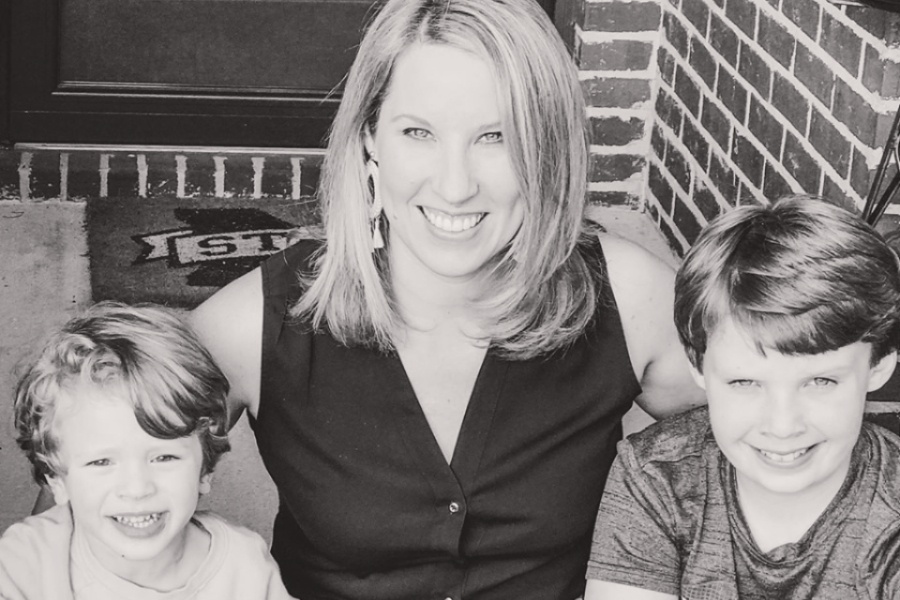Mercy Multiplied is a licensed child-placing agency in the State of Tennessee. Since November is National Adoption Month we wanted Lauren, a Mercy Adoptive Mother, to share ways in which you can support Adoptive Families on their adoption journey.
The emotions an adoptive family feels throughout the adoption process is a study in opposites. Wonderful and heartbreaking. Thrilling and exhausting. Faith-building and faith-testing. Yet every minute of every emotion that brought my son to our family is something I’ll treasure for a lifetime.
My husband and I adopted our youngest son through Mercy five years ago. The team at Mercy provided tremendous support for my family as trained professionals who understand the intricacies and emotions that come with adoption. That said, your friends, families, and coworkers don’t always know what to say and how to help adoptive families. So below is some advice I’d recommend sharing with your friends and loved ones:
1) Understand the opposites.
Keep in mind that an adoptive family may feel both overjoyed and riddled with guilt. While a new family member is joining their lives, they may feel some sadness and guilt on the birthmother’s behalf. I know we did. She made a hard decision that was a great blessing to our family. We’ll never forget that sacrifice. So, if you’re lifting up that new adoptive family in your prayers, please also take a moment to pray for the birth mother as well.
2) Navigate the uncharted waters.
I haven’t run into an adoptive family yet who sailed through the adoption process without hitting a few squalls. While we were present at our son’s birth, we came home with empty arms and broken hearts after our birthmother changed her mind about the adoption. Who could blame her? He was perfect and beautiful. After several very difficult days, she decided to move forward with the adoption. For friends and loved ones that are watching adoptive families go through the peaks and troughs of each wave: simply praying that God’s will be done is the best way to provide support.
3) Be sensitive with the story.
One of the best pieces of advice I received was from a counselor who reminded me: People are curious. They will want to know your son’s origin story. They’ll ask you questions about his birth parents that you aren’t comfortable answering. Always remember that it’s your child’s story to share one day – not yours.
Friends and family: unless the adoptive parents volunteer the information, please don’t ever ask. I know you’re not being intentionally nosey and insensitive, but keep this in mind: if you don’t know, you can’t share. Imagine if an adoptive child, years down the road, asks you questions about their birth parents. Questions they may be afraid to ask their parents because they’re afraid to cause hurt feelings: Can you tell me about my birthparents? I heard XYZ about my adoption – is it true? Mom and Dad don’t talk with me about my birth father – do you know him? Trust me, it’s best not to know those answers so you’re never put in an uncomfortable position of being the messenger as that’s the adoptive parents’ job. And if you do know sensitive details, please never, ever share them with others. I know in my case, I want our son to hear his story from my husband and me first – never from a well-meaning relative or friend.
4) Offer help of any kind.
Adoptive families may have some pretty unique needs. In our case, I was scared to purchase any baby items until the adoption went through. Which meant the day we brought our son home was also the day I purchased half of Target’s baby aisle. A dear friend loaded up my car with gently used baby items, while another put a blue bow on my mailbox and decorated my house for his homecoming, while other family members purchased and put together his crib. It was truly a group effort and we were grateful to have the hands-on support. Casseroles and dinner are always helpful – but if you see a need (especially early in the adoption), don’t be scared to jump right in and offer assistance.
5) Fiercely love and pray.
In hindsight, I can’t believe I worried about this, but I did, so I’m going to share it with you. I guarded my heart so heavily during our adoption process because I was scared I was going to be hurt or disappointed. Guarding my heart didn’t help leading up to my son’s birth, and even once he was home, I was scared that it might not be permanent. Yes, we’d signed the papers. And yes, even once we’d finalized his adoption in court, I still had the fear.
As a loved one or friend, you may not think the fear is rational (or even logical) if an adoptive parent confides in you. But let me tell you – an adoptive parent has more than likely been on a journey of hurt and disappointment trying to build their family. Once they bring their child home, it’s only logical they may be grappling with feeling like it’s too good to be true. The best way to support that family is to fiercely love and pray them through it. Don’t tell them they’re crazy for being scared or disappointed that their child might be taken away (even when the fear is unfounded or legally impossible). Simply say, “God’s got this, and He’s got you and your family.” And He will. Because He is always working for our good.
Learn more about the Mercy adoption process. Feel free to reach out to our Director of Adoptions, Chelsea Rahbar, LCSW, if you want to learn more about Mercy’s Adoption Agency at 615-831-6987.

